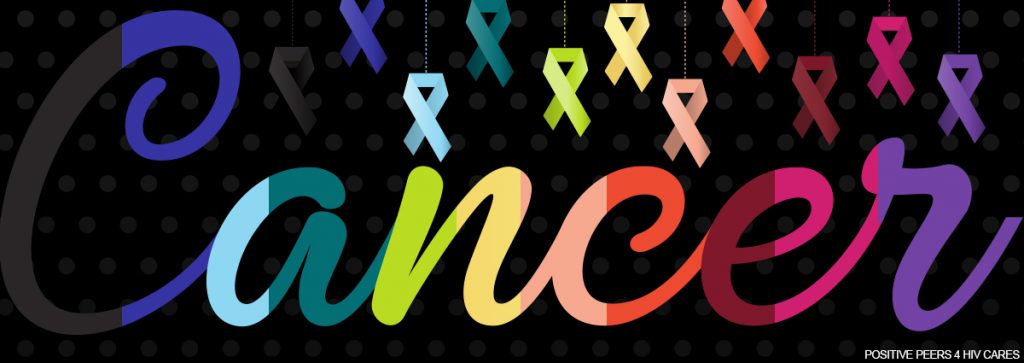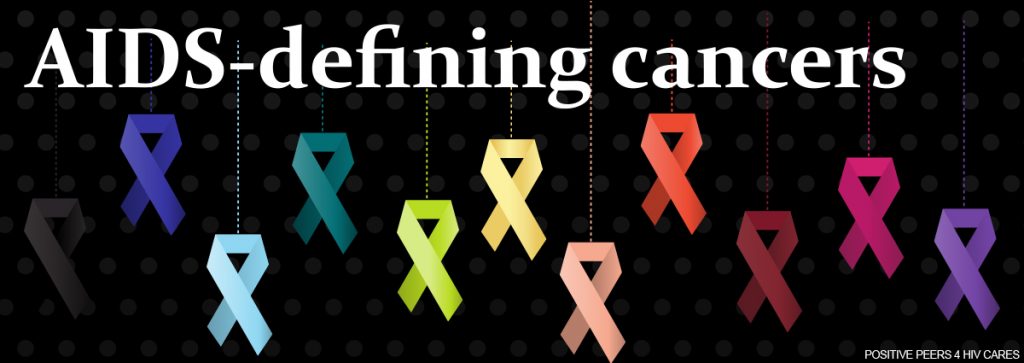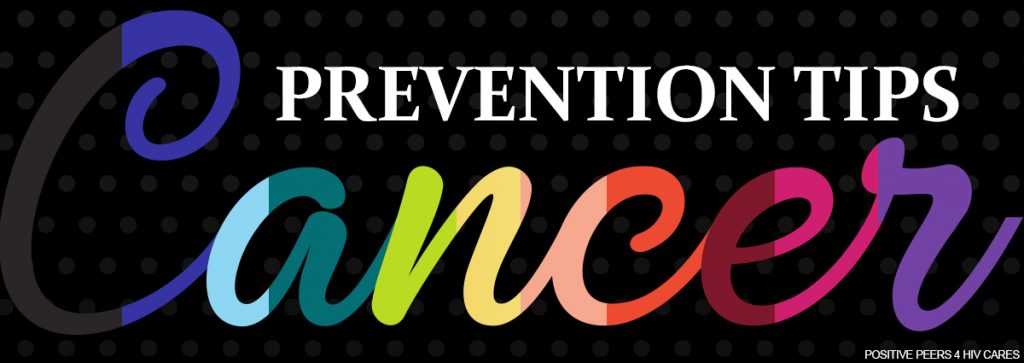
By: Ann K. Avery, MD, Infectious Disease Physician at MetroHealth Medical Center
HIV weakens the immune system — that’s HIV 101. What that means is that people living with HIV can get some diseases more easily than other people, especially if they are not in treatment. Some of those illnesses that people living with HIV stand a higher chance of getting are certain types of cancer.
We get it — that’s not exactly cheerful news. But there is a bright side.
These days, people who stay on their HIV meds live well into old age. Cancer is mainly a disease of older populations. Thus, a lot of the extra cancer risk for people living with HIV happens because they’re getting older. That’s good news, right?
And even more good news is that you can do things to reduce your risk!
Here are the five best things you can do to lower your chance of cancer:
- Staying on your HIV meds to reduce the chance of getting AIDS-defining cancers.
- Avoiding activities like drinking and smoking that cause other kinds of cancers.
- Exercise regularly, at least twenty to thirty minutes each day if possible.
- Wear sunscreen (yes, even if you have brown skin, that melanin doesn’t protect you completely from skin cancer, honey!)
- Get screenings for certain types of cancers at the age or timeframe that your doctor recommends (this is usually something to worry about more as you age — like at 40 and after — but there may be some exceptions based on your personal health history, so be sure to discuss with your doctor.)

AIDS-defining cancers
Thankfully, modern HIV meds have made these types of cancers rare in patients living with HIV because most never get to the point of having an AIDS diagnosis. But if you’re not taking your meds, then your weakened immune system can sometimes struggle to defeat them.
Kaposi sarcoma (KS): This cancer develops in the cells of the blood vessels and lymph nodes. A healthy immune system can stop the virus that causes Kaposi sarcoma. Taking anti-retroviral meds dramatically reduces your KS risk.
Symptoms:
- Dark purple or brown spots on the skin or in the mouth
- Swollen lymph nodes
- Unexplained fever
- Weight loss
Non-Hodgkin’s lymphoma: This cancer can also affect people who are not living with HIV. It is becoming less common thanks to HIV medications. Primary central nervous system lymphoma, which starts in the brain or spinal cord, is a variety of non-Hodgkin’s lymphoma common among people living with AIDS.
Symptoms:
- Seizures
- Facial paralysis
- Confusion
- Memory loss
- Fatigue
Invasive cervical cancer: This cancer has been linked to infections caused by the human papillomavirus (HPV). Women living with HIV face a high risk of getting cervical intraepithelial neoplasia, which can progress to invasive cervical cancer.
Symptoms:
- Vaginal bleeding in odd or unexpected ways
- Strange or odd discharges from the vagina
- Painful sex
Physicians recommend that women living with HIV get pap smears annually at the very least. This is mainly to detect cancer-causing strains of HPV, which can be hidden on the cervix, and take care of them before they grow and become problematic. Talk to your HIV doctor about how often you should see your OB/GYN – or see if your HIV doc can do the pap instead (if you two are comfortable like that).
Taking control of your HIV treatment will pretty much keep you from getting to the point where you’re at risk for AIDS-defining cancer. However, there’s no guarantee, of course. But it makes sense to take your HIV meds as directed, get virally suppressed, and keep your HIV level as low as possible to give you the best odds at avoiding these cancers.
Come join our private, stigma-free, supportive community.
Health management tools with medication & appointment reminders.
Social networking in a community conversation & private chats.
Cancers unrelated to AIDS
If you are living with HIV, you may also face a higher risk of:
- Hodgkin’s disease
- Melanoma skin cancer
- Squamous cell and basal cell skin cancers
- Liver cancer
- Lung cancer
- Mouth and throat cancers
- Testicular cancer
- Anal cancer

Cancer-prevention tips
In addition to taking your HIV meds and staying virally suppressed, you can reduce your cancer risk by:
- Quitting smoking to reduce the odds of lung and throat cancer
- Reducing or eliminating drinking and drug use to lower the risk of liver cancer
- Getting tested and treated for hepatitis to reduce liver cancer risk
- Getting regular cervical pap tests can catch cervical cancer early, if you have a vagina, and yes, you need to get regular anal paps too, if you have receptive anal sex
OK, now that you’re an expert….
The news isn’t all bad, if anything it’s empowering. If you rock your HIV treatment and take charge of your general health, you’ll be far better off 😊
More from the National Cancer Institute: HIV Infection and Cancer Risk
Related Blogs:


